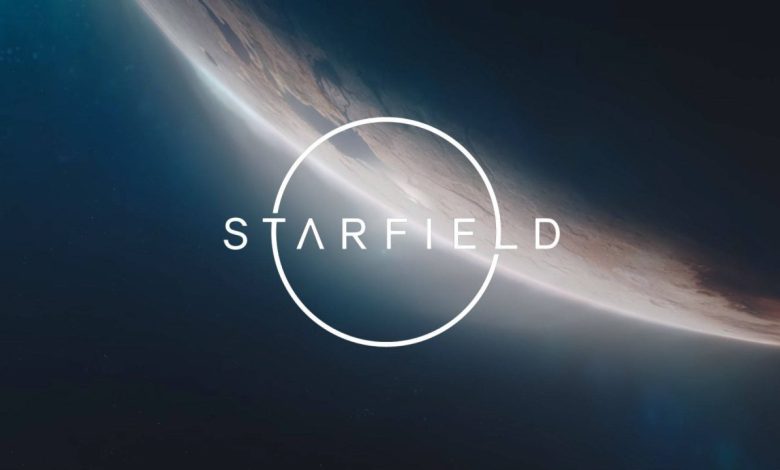
One of the issues that has been on my mind a lot from time to time is the modern role of written reviews in today's reality due to the abundance of audiovisual material available to the reader-viewer immediately after the launch of any game, especially of big releases like Starfield. The classic structure of a review, like the ones many of us grew up reading in print magazines, involves a detailed presentation of a game's individual features and systems, resulting in a partially subjective assessment of their quality and a recommendation to buy (or not). However, I personally doubt that this structure is meaningful and useful when applied to a review that arrives several days after launch, since the internet is already filled with detailed information and videos about every detail of the game and any question can be solved instantly with a few seconds of searching.
For this reason, but also for the fact that Starfield has several peculiarities that make a straightforward purchase proposal or not very difficult, I have decided to devote most of the text to answering questions and queries that seem important to potential buyers. The analysis of the individual features of the game will be done implicitly through these questions but I will not follow the traditional "introduction-story-gameplay-technical-section-conclusion" structure in an attempt to be more useful to you and not repeat things you have already read all over the internet. In any case, I'd like to read comments on the forum about what kind of information you're looking for from a modern game review. Now let's move on to the presentation.
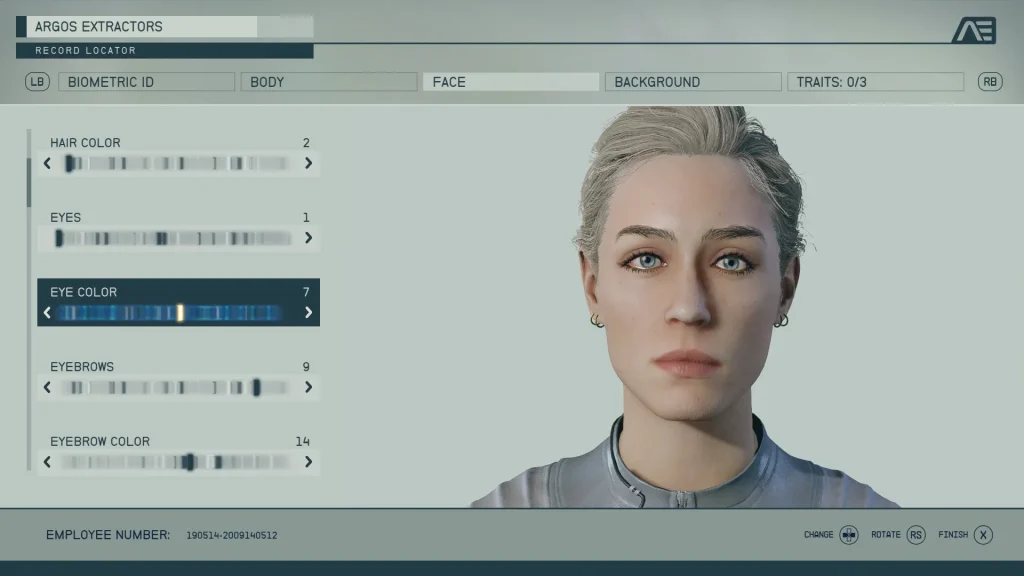
What kind of game is Starfield anyway?
The simplest answer: Starfield is a Bethesda game, an open-world action RPG similar to the ones the company has been making for decades. Much of the gameplay will look instantly familiar to those who have played an Elder Scrolls or Fallout since 3, but there are factors that deviate from what we've seen in the past that I'll touch on shortly after. In general though you should expect the familiar combination of questing, exploration, leveling up, real-time action, crafting and dialogue in a package that includes hundreds of hours of gameplay. So there's no question of value for money, the amount of content is truly impressive.
So if I love Bethesda games I should buy it immediately?
Probably yes, but with a very important asterisk because of Starfield's world structure. Bethesda games like Skyrim and Fallout 4 have seamless open worlds, which means a single map that the player can even walk from end to end if they want to. This is not the case in Starfield and it is very important to know this and take it very seriously before you buy if the main reason you like the company's games is this free and uninterrupted exploration.
The wider map in Starfield includes planetary systems and you can land your ship on any planet you want, but the map of each planet is not unified. Each planet has two kinds of maps: those of areas that have been manually placed there by the developers (e.g. cities or settlements, outposts, facilities and other points of interest) and those on the rest of the planet's surface that are procedurally generated. Both types of maps have (broad but) specific boundaries which if you reach you have to change direction or turn back, consequently in Starfield there is no longer the seamless factor. You can land your ship anywhere you want on the surface of a planet (by selecting the spot from the map and after a loading screen) but you can't start at one edge and walk to the other. So imagine the world of Starfield as a traditional Bethesda game map but (much, much) larger and chopped up into discrete pieces.
If you are ok with this structure and you like the company's games in general then by all means. feel free to buy as you will surely get your money's worth.
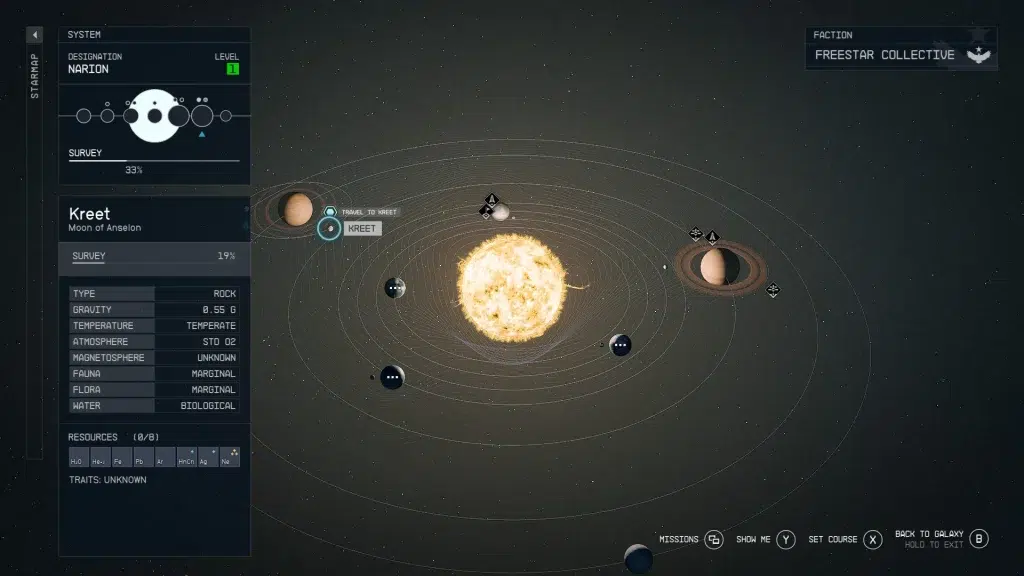
If I am generally not a fan of Bethesda's games, should I buy Starfield?
Probably not, unless you're a fan of the sci-fi setting. As I mentioned at the beginning Starfield is a Bethesda game with all its merits, so there's nothing here that will make you drastically reconsider your opinion if you're not a fan. There are new elements (space ship combat for example) but the majority of the gameplay consists of the familiar core that Bethesda has been offering for decades.
What if I am not a Bethesda fan but I LOVE sci-fi?
This is where things get really interesting because, being a huge sci-fi fan myself, I think that the developers really put a lot of effort into making the dreams of sci-fi nerds come true, although the game engine seems to have given them a hard time on some things. When you arrive in your ship on a new planet, scan it from orbit and land to see what the environment is like and what problems the inhabitants have that you could solve, it's hard not to feel like the captain of the USS Enterprise or the Millennium Falcon. Before the official release I was writing on the forum that based on what we were seeing in trailers and previews Starfield looked like the ultimate space game and now, after dozens of hours of gameplay, I say it didn't hit the mark after all but it didn't fall far short. To a large extent Starfield allows the player to live the dream of space exploration and that's why I think gamers who grew up watching Star Trek, Star Wars, Babylon 5, Battlestar Galactica, The Expanse and other similar sci-fi series are likely to be utterly engrossed by Starfield's gameplay.
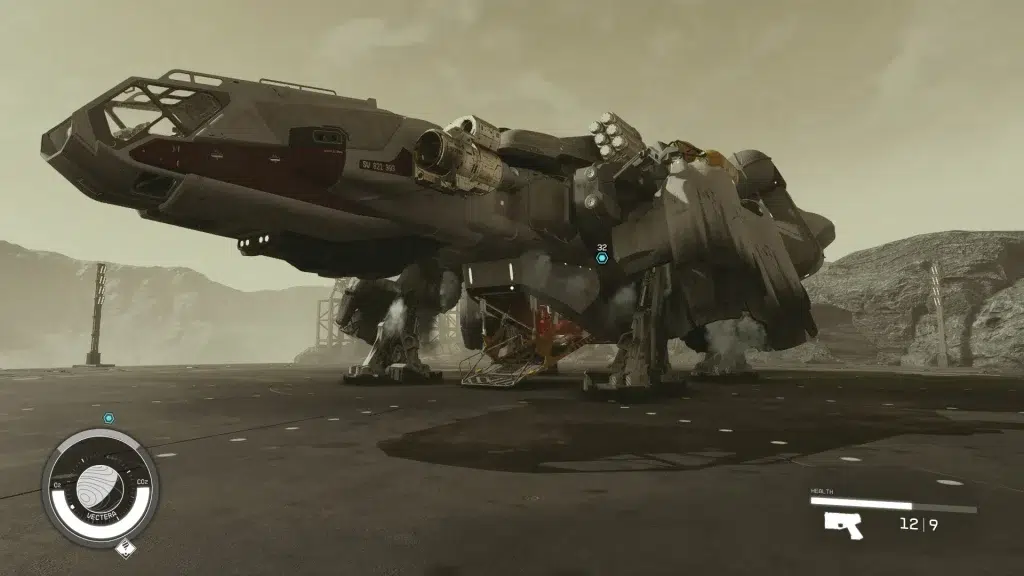
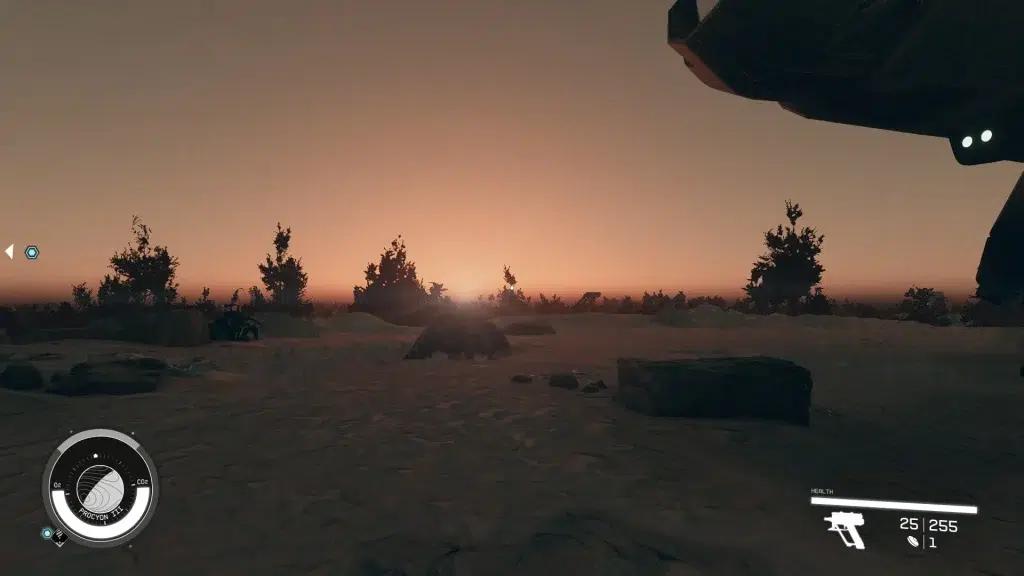
Would I be better off playing No Man's Sky which has seamless exploration?
Maybe, depending on what kind of gameplay you prefer. There's no doubt that in the exploration department No Man's Sky excels as it offers full planetary exploration and landing/taking off without (obvious) loading screens. In contrast, in Starfield your every move will definitely involve more than one loading screens, a result of the now outdated engine Bethesda uses. As we've already pointed out, the game's universe is fragmented so if the uninterrupted exploration factor is important to you then clearly no Man's Sky is a much better choice.
On the other hand, the main activities in No Man's Sky revolve around survival and crafting while the core of Starfield is undoubtedly questing and I personally find the latter infinitely more interesting than the former. I think Starfield is clearly a superior choice for gamers who prefer the structure and tiered progression of an RPG rather than the more free-form approach of a game like No Man's Sky which relies heavily on the player's willingness to set goals to themselves.
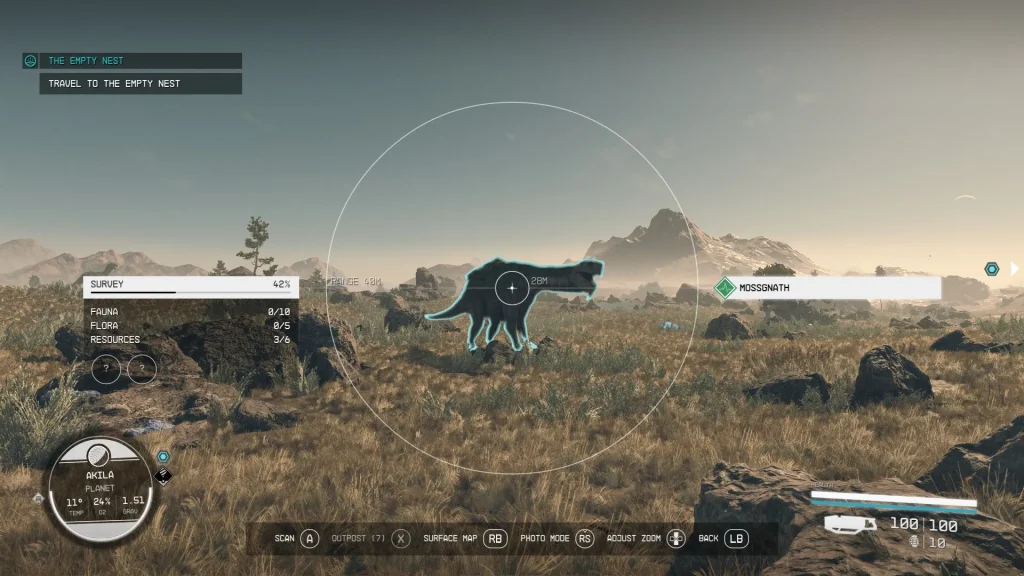
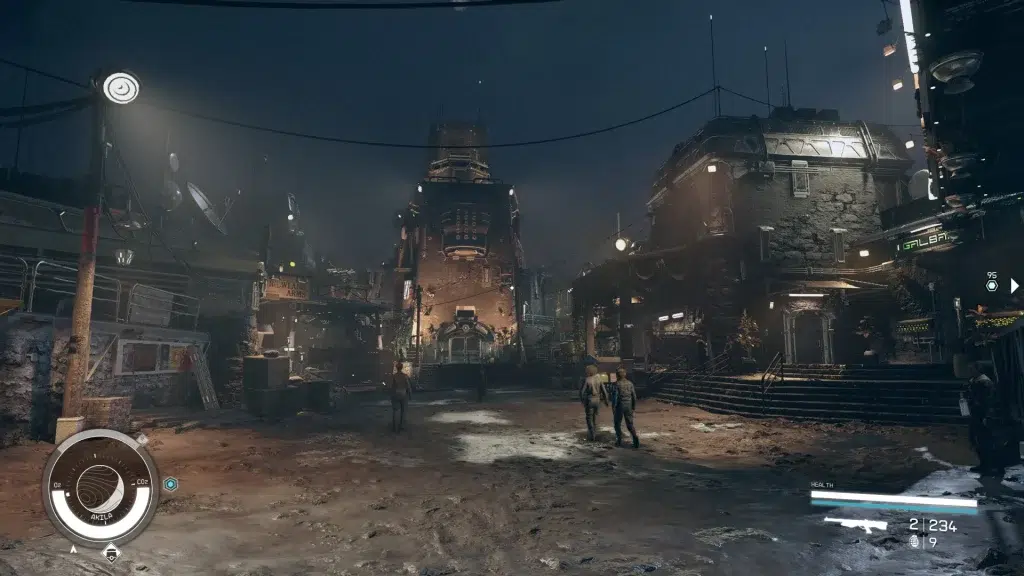
What about us Mass Effect fans? Can Starfield fill the void left by Bioware?
Yes! But don't get excited before I go into details. The truth is that Starfield bears many similarities to Mass Effect, yet I'm hesitant to wholeheartedly recommend it to Bioware fans for a very specific reason. In both Mass Effect and Starfield you have your own ship, you explore space via a galactic map, you travel with the interference of loading screens, you visit large hubs and procedurally generated planets, you collect companions with whom you have frequent conversations and can romance, the action gameplay involves mostly shooting, you can play as a good guy or a tough guy, and so on. The similarities are so many that I wouldn't be surprised if Starfield's original design document started with the phrase "let's make our own Mass Effect".
So now comes the "but". Bethesda's writing isn't as good as good old Bioware's and as a result one of Mass Effect's strongest points, the interesting companions, is missing from Starfield. I wouldn't call the level of writing in the game bad, on the contrary I think it's quite a bit better than Fallout 4 in both the main quest and faction quests and side quests, however none of the companions in Starfield are as good as Garrus, Wrex, Tali, Thane, Liara or Mordin Solus. They're all clearly of a lower level of quality, so maybe that factor is a deal breaker for Mass Effect fans. Otherwise, I do believe that Starfield can indeed entertain fans of the series until Mass Effect 4.
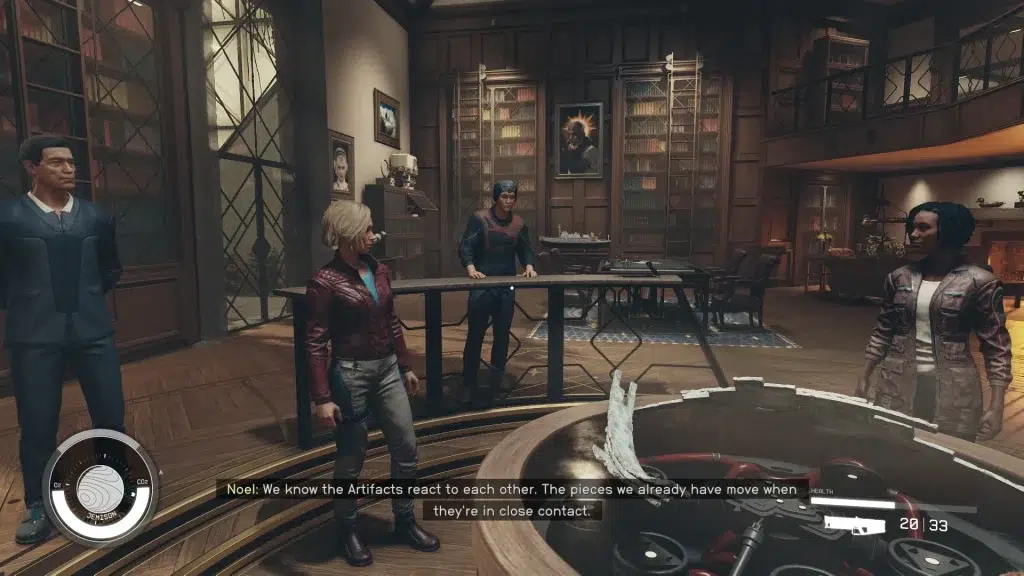
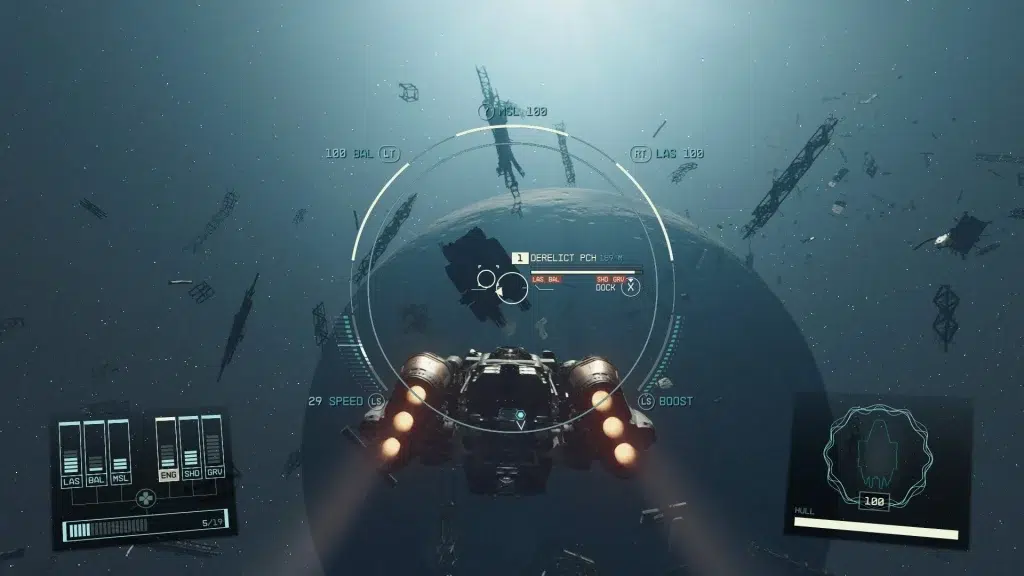
I just finished Baldur's Gate 3 and I'm looking for the next great RPG. Do I buy?
No, for God's sake, no. Baldur's Gate 3 is probably the best RPG of all time while Starfield is just Bethesda's next game. I'm not saying that in a derogatory way, I just want to make it clear that the two games have completely different styles, gameplay and focus. Baldur's Gate 3 is the apotheosis of reactivity, choices and consequences, tactical combat and good writing. Starfield is an incredibly broad game, with a great wealth of content and many different gameplay systems to engage with, but it's clearly much more shallow compared to Larian's masterpiece in all the areas that primarily interest an RPG player. It's possible to have a good time playing Starfield as long as you don't get into the process of comparing it to Baldur's Gate 3.
So, what has Bethesda improved compared to their previous games?
Quite a few things! As already pointed out earlier, the writing is better than Bethesda's most recent games. The graphics have clearly been upgraded, the soundtrack is sufficiently epic and the quality of the quests is at least a step up from Fallout 4. It's also worth pointing out (due to the company's shaky record in this area) that there has been a significant improvement in the stability and polish of the game as after dozens of hours of gameplay I didn't encounter a single crash or any notable bug. Of course, not everything is rosy on the technical side as you'll see below, but we have to give credit where credit is due: this time Bethesda has delivered a game that can be described as relatively polished at launch compared to all of its previous releases. Finally, the shooting has been improved a lot and the handling of the various weapons is much more enjoyable and fun, thus improving the overall combat.
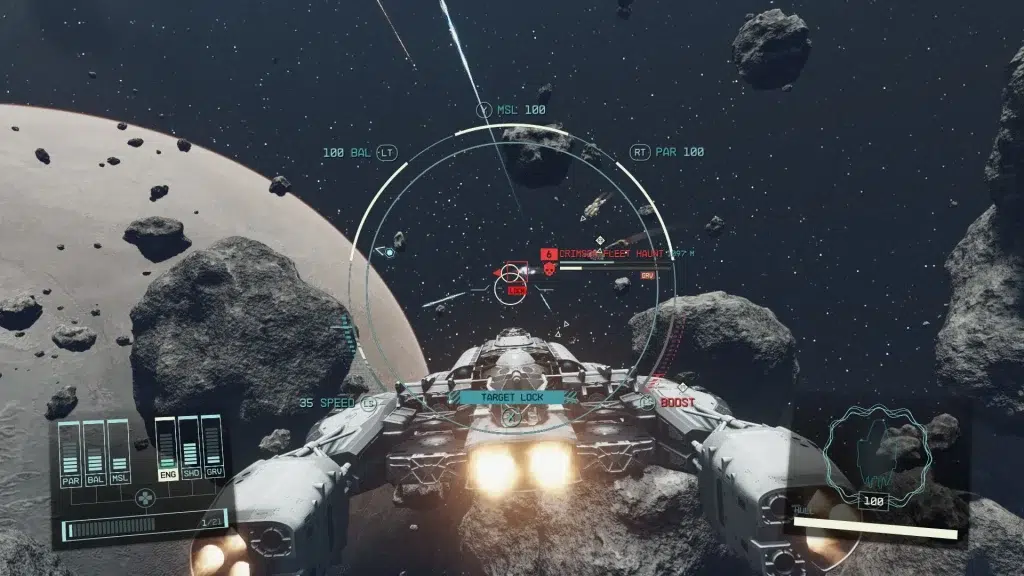
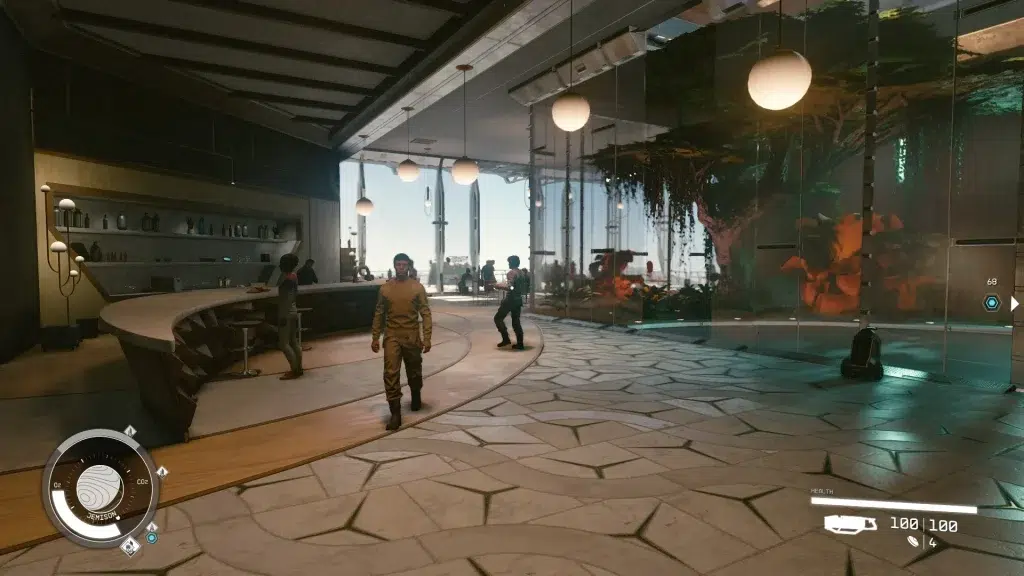
And which elements have not been improved or got worse?
The graphics engine remains the same (Gamebryo, Creation, call it what you will) and as a result, its issues are once again present. There hasn't been any notable progress in body animations and facial animations of the characters, they remain as wooden as you remember them despite the improvement in the character models. The AI of companions and enemies is once again simplistic, while the plethora of loading screens affects immersion. Also, the interface is relatively clean but several of the actions you need to take require an unreasonable amount of clicking and jumping in and out of menus.
However the biggest problem is performance and optimization because Starfield is a very heavy game, especially for Nvidia graphics cards and Intel CPUs. The developers wanted to create a much more detailed game and it's obvious that the graphics engine is straining under the weight of the demands. On the system I had at my disposal, a laptop with an AMD 5800H CPU, Nvidia 3060 GPU with 6GB VRAM, 16GB RAM and NVME drive, 60 fps at 1080p resolution proved to be unfeasible in the outdoors while wandering around big cities occasionally threatened to drop the framerate below 30 fps. Even the space combat sequences that seemingly should be lighter, given the few objects on screen, lacked a consistent framerate apparently due to the various simulations running in the background. You'll definitely need a powerful system to reliably hit 60 fps, otherwise you'll probably have to settle for a console-like 30 fps lock.
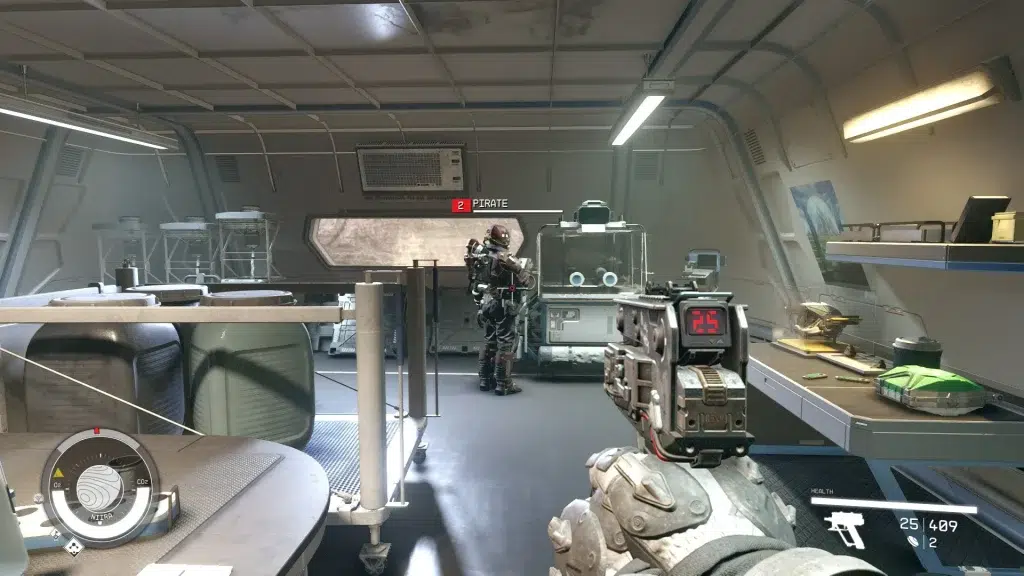
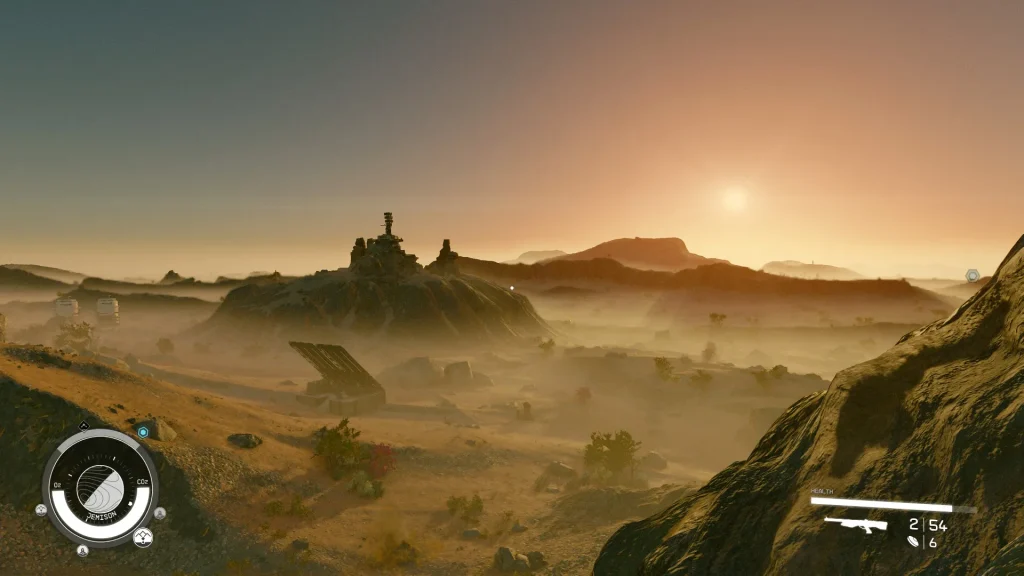
So what do you personally think of Starfield?
First of all, let me clarify that the rating you will see at the end of the review represents my assessment of its overall quality today, based on an objective assessment of its strengths and problems. So objectively, from the perspective of a reviewer who is asked to judge a product and recommend whether or not to buy it, Starfield is a good game that offers a great wealth of content and hundreds of hours of gameplay, but I wouldn't say that it is ultimately Bethesda's magnum opus as we hoped before launch. In most areas I feel that Starfield takes (at least) a step forward from Fallout 4, however the issue of the lack of seamless exploration is the Achilles heel that takes away my ability to call it the company's best modern game. I wouldn't be surprised if many Bethesda fans give it a negative review precisely because of this issue.
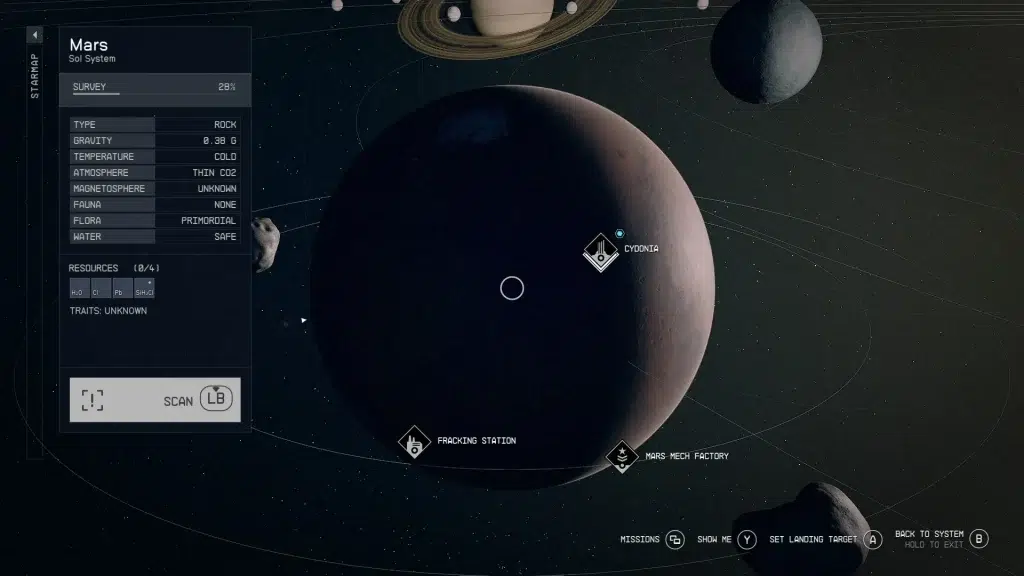
Changing the perspective and speaking now purely subjectively, for me Starfield is the Bethesda game I enjoyed the most after Morrowind and its drawbacks didn't bother me much. I consider it a better overall game than Oblivion, Fallout 3, Skyrim and Fallout 4, with more enjoyable gameplay and higher quality in most individual elements. For me the new sci-fi setting is a complete success, the so-called "NASApunk" aesthetic has been implemented in a great way, the new gameplay systems that have been integrated into the game like space combat enrich the action and enhance the variety, and some new features like ship customization and building appealed to me so much that I spent more than two hours trying to build the ideal ship. For me personally, as a person who grew up watching Star Trek and dreaming of experiencing similar adventures through gaming as far back as when I was a kid playing Elite on my Amstrad, Starfield satisfied most of my personal "wants" from such a game, at least until Star Citizen comes out (if it ever does).
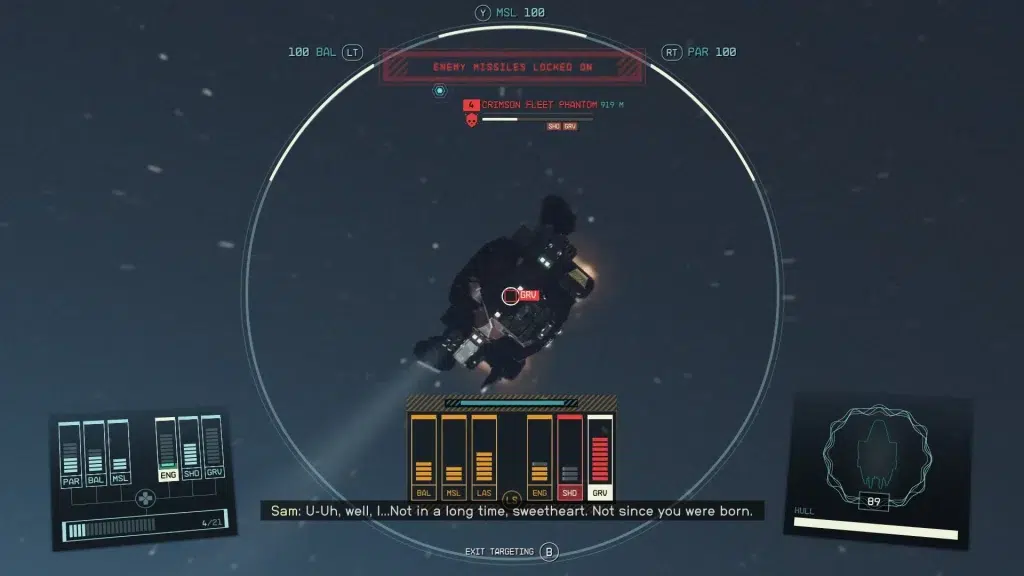
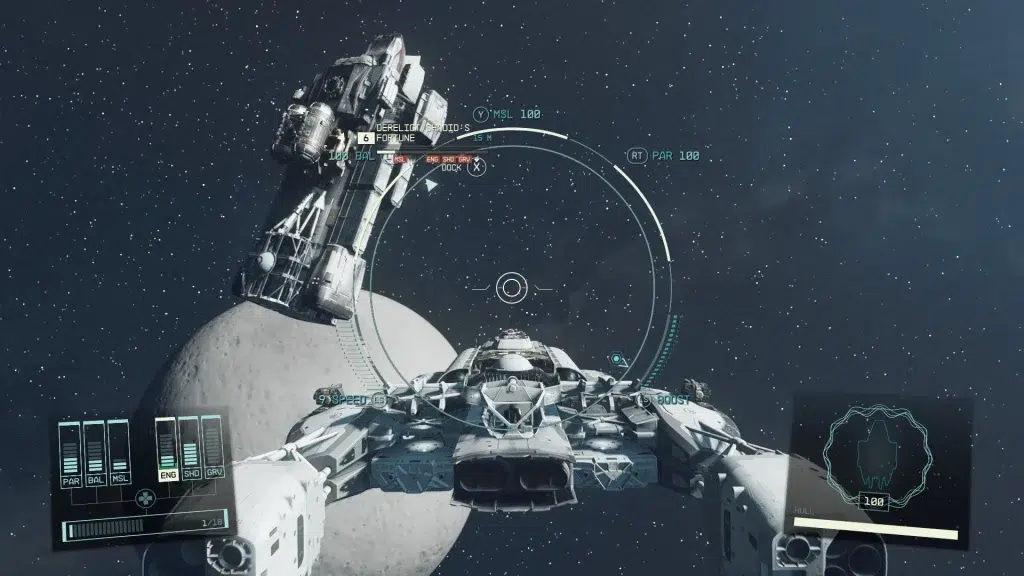
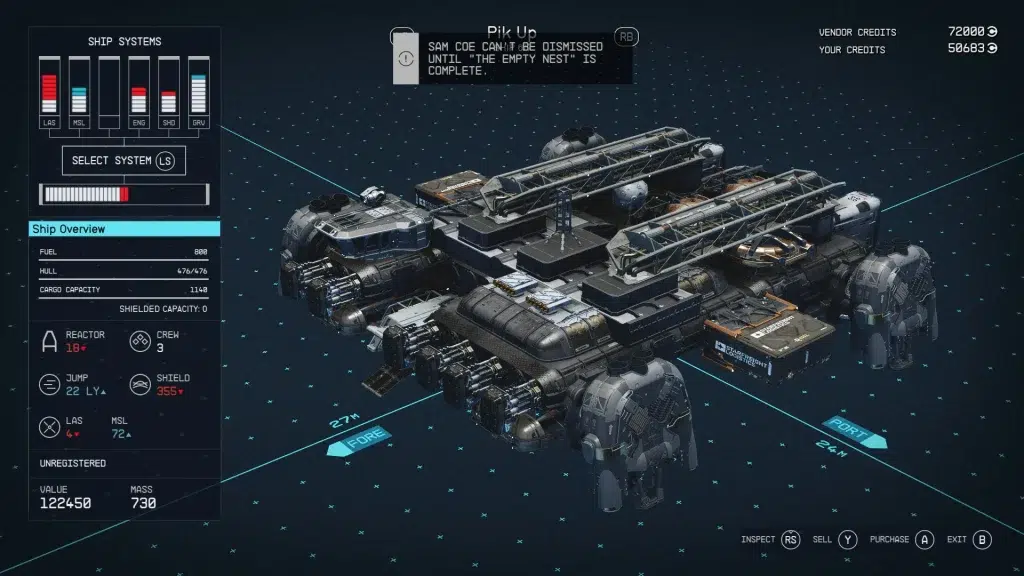
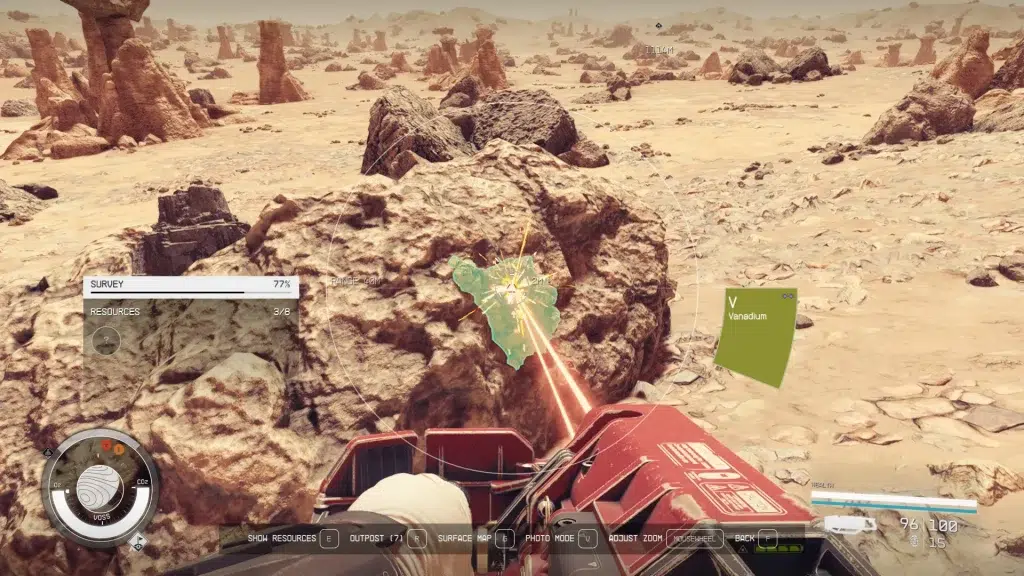
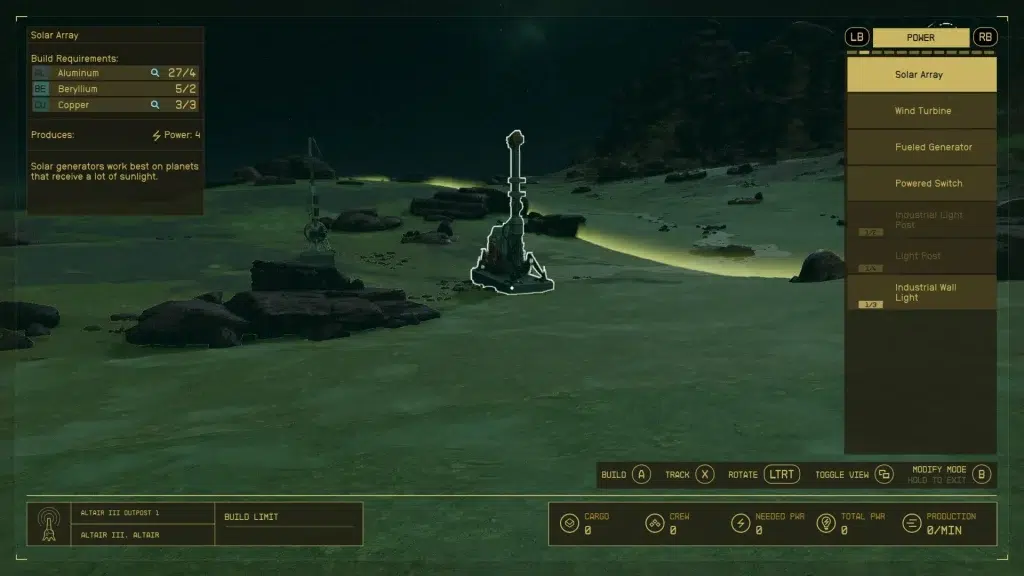
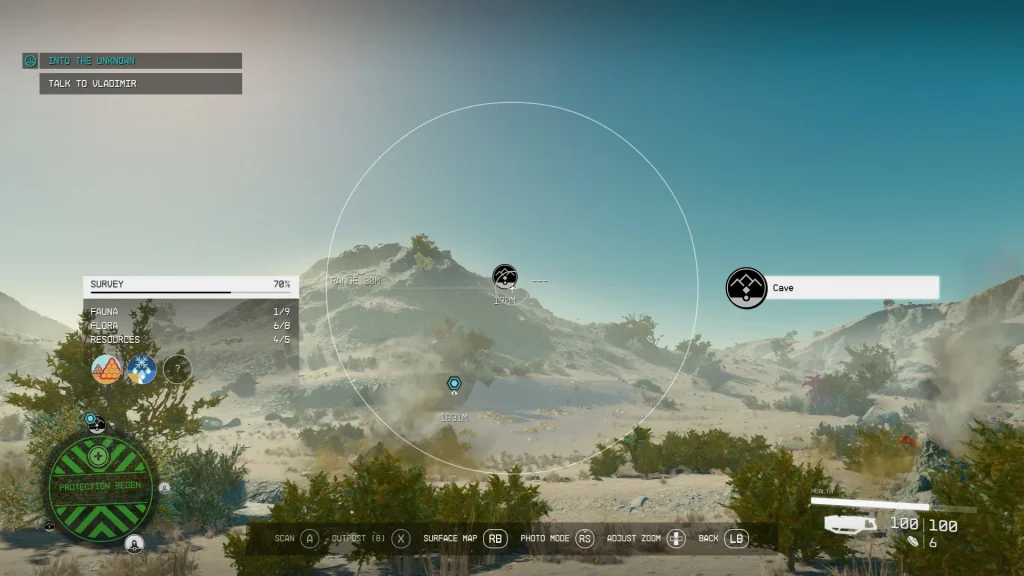
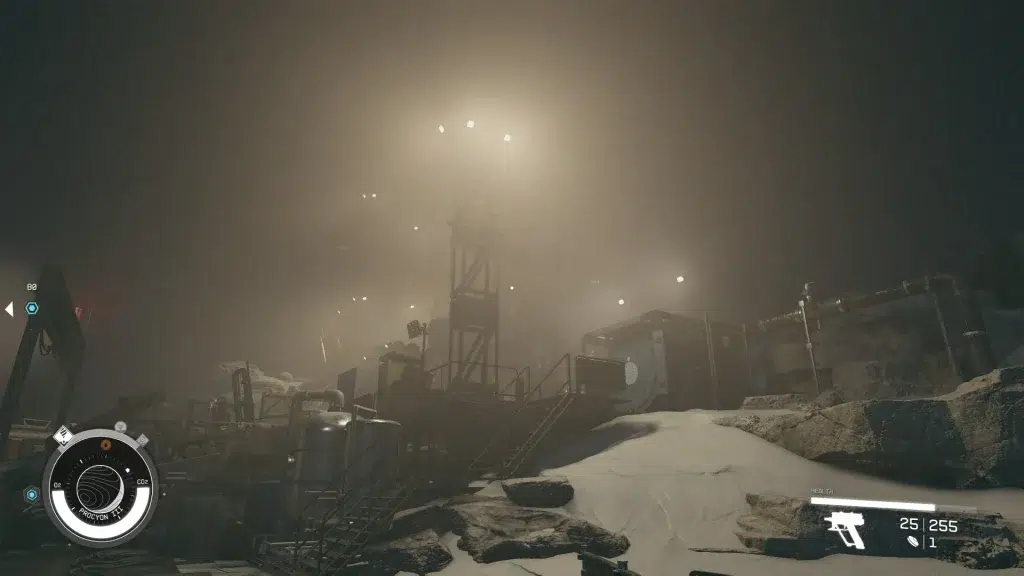
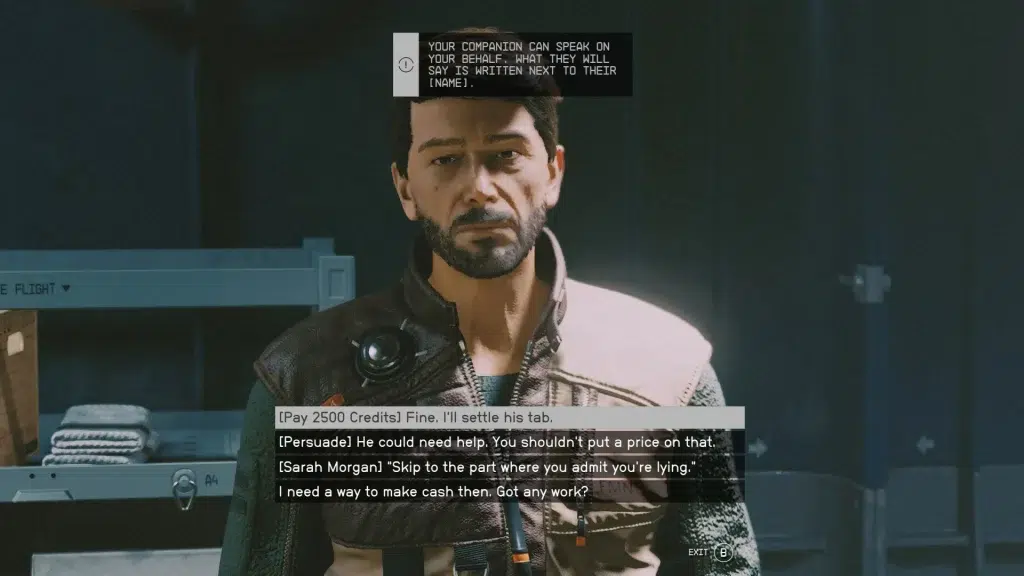
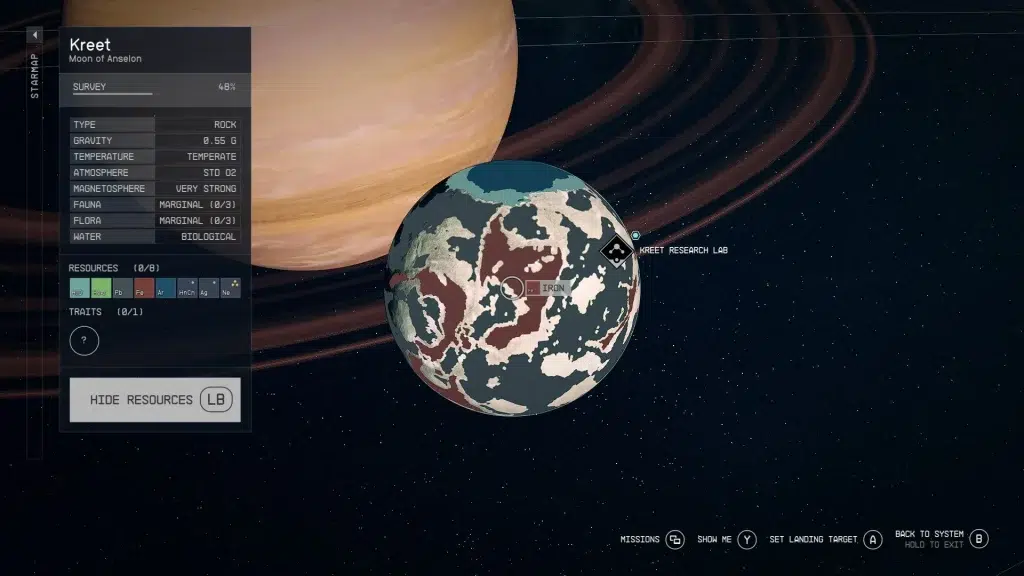
RATING - 82%
82%
Maybe not the ultimate sci-fi game we were hoping for before launch, but Starfield has a lot to offer to both sci-fi fans and fans of Bethesda's games.




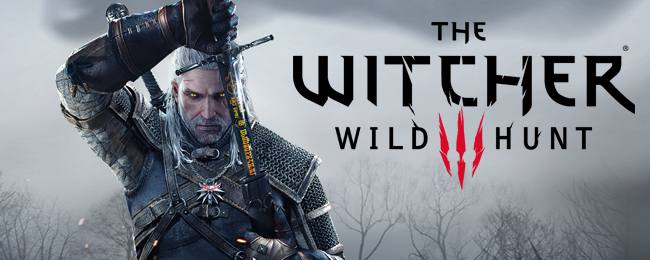
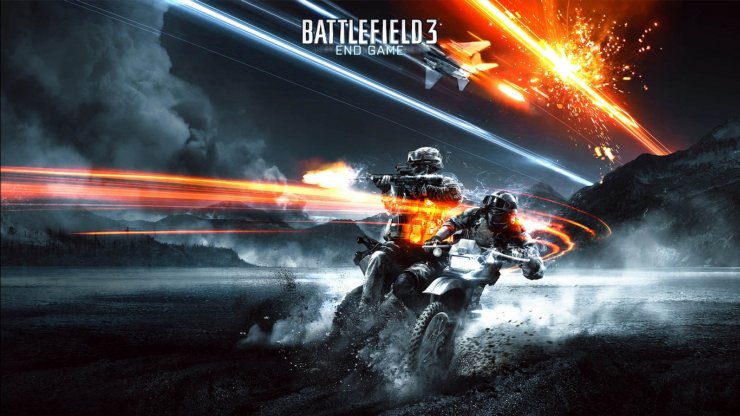

data-trpgettextoriginal=50 comments